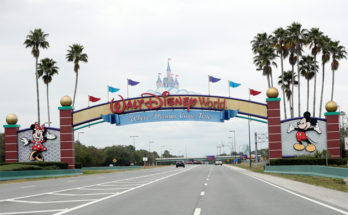By John
If you don’t think the oil and gasoline industry has changed dramatically, consider this.
Tensions in the Middle East have risen sharply in recent months to a point where the US and Iran are continually threatening each other. Iran shoots down a US drone. The US threatens to attack and to impose more sanctions on the Middle East nation.
War seems a possibility.
And more recently, Israel said it is preparing for a “military conflagration” with Iran if the battle of words with the US turns physical. As the situation escalates, that whole region of the world is on edge.
All of this is happening at a time when America is celebrating the Fourth of July holiday weekend, when gasoline consumption increases substantially — a jump that usually lasts through the summer months and, in itself, causes higher prices.
In the past, a Middle East situation like this at this time of year would have sent gasoline prices sky high. Just look at charts of gasoline prices in the early 1970s and 1980s, when tensions with OPEC and the Middle East cost US motorists a lot of money and caused an equal amount of aggravation.
These days? The price of gasoline has barely budged. In fact, gas prices (as the US Energy Information Administration predicted months ago) fell from an average of just under $3 a gallon in May to $2.79 a gallon last week.
So, the tensions in the Middle East might have caused gas prices not to drop as much as they would have, but there was certainly no spike.
Why the change? Because the US has become energy-independent, meaning that because of fracking — a technology for extracting oil from the ground — as well as wider exploration in America, in a pinch, we don’t need the oil from the Middle East.
There’s also this: Not only have cars become much more efficient in recent years, but also many vehicles are now designed to run on something other than gasoline. Or, in the case of hybrid vehicles, they run on gas and batteries, which cuts down on fuel use.
Stopping spikes in oil and gasoline prices also helps the financial markets.
Thirty-one years ago yesterday — on July 3, 1988 — the USS Vincennes, a Navy guided missile carrier, accidentally shot down an Iranian civilian jet, killing all 290 people on board.
This was, to say the least, an international incident for which the US eventually paid reparations.
There were lots of other things going on that year. But that incident on its own helped put pressure on the financial markets. Amid fears oil supplies from the Middle East would be disrupted — as they had been in the early 1970s — the prices of oil and gasoline rose.
Gasoline spiked nearly 10 cents, rising from around $1.34 to $1.43 a gallon from 1988 to 1989.
And stock market prices fell by 3% around the time of the Iranian jet incident.
So, when you are filling up your gas tank this holiday weekend and going to the beach, just think of how lucky you are that the financial and energy markets just don’t care as much about what’s happening in the Middle East.




